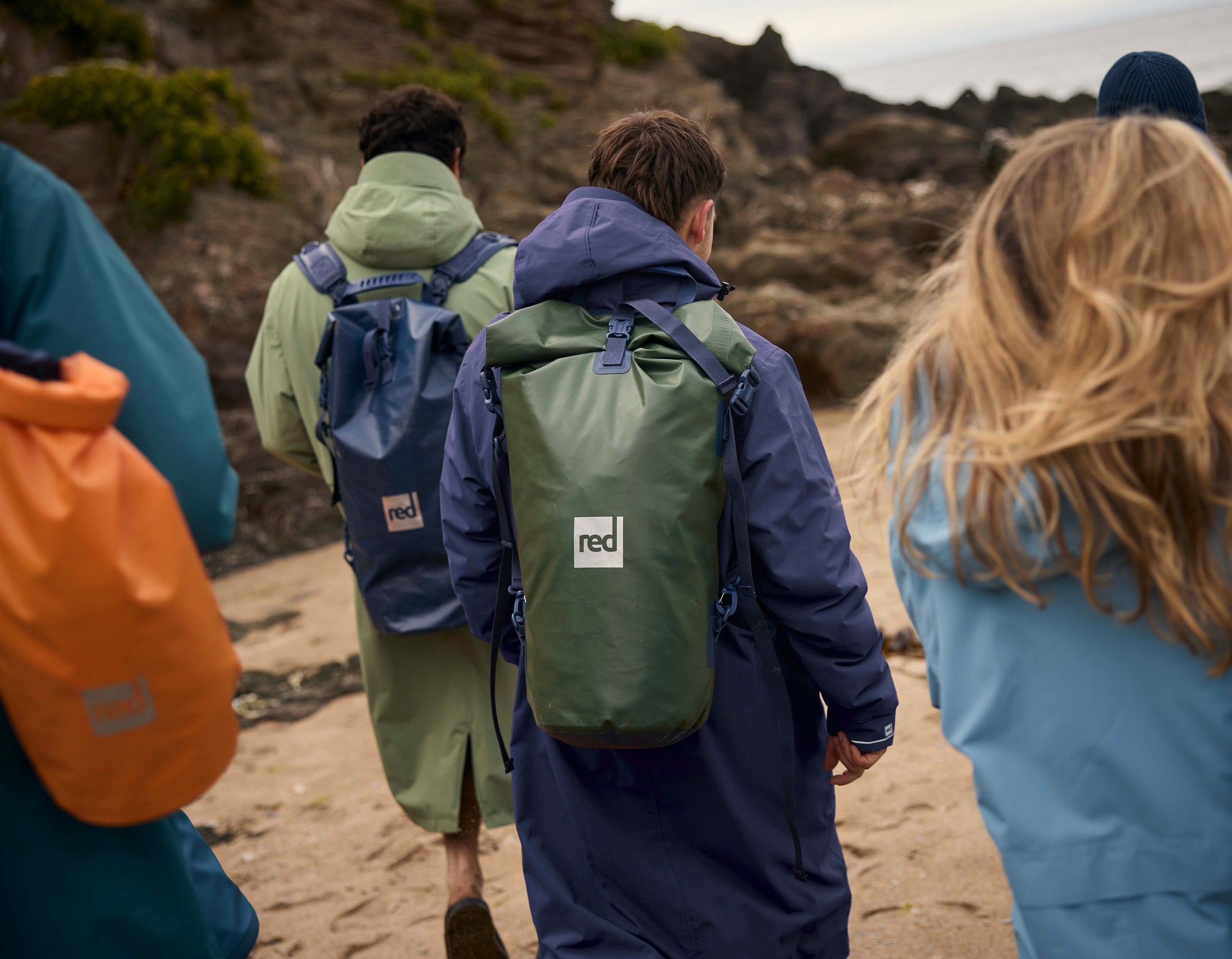
What Size Dry Bag Do You Need For Your Adventure?
Hitting the water? Find out what size dry bag you need to take with you in this handy guide. Our range of roll top dry bags has every adventure covered.


Written by Luke Green /
If you’ve been swept up by the running bug, you’re not the only one! The popularity of running has surged massively over the past couple of years as more and more of us look for physical activities that can be done almost anywhere and at any time. However, whether you’re a seasoned runner or still finding your feet with your resolution turned hobby, one thing never changes: running in the heat is hard.
Even when you’re feeling fit as a fiddle, the arrival of summer can do funny things to your ability to run. Energy levels wain quickly, you’ll find yourself sweating more, and pushing through the mental wall might be harder than usual. While there is certainly something to be said for giving your body a rest when it needs it, there’s no need to postpone your training goals entirely this summer. Follow these tips for running in the heat and you’ll find your summer running safe, manageable, and enjoyable.
Our tips for running in the heat begin with something you should be used to doing already: planning your route carefully. Just as you’d try and find a flatter route when on an easy or recovery run, there are tactics you can deploy when deciding where to run in hot conditions. The shade is your best friend and will make it feel a lot cooler than it is so pick a wooded or sheltered spot that takes in plenty of shaded paths.
Approach your run with a degree of flexibility too. If you’re out and about and notice that the other side of the path or pavement offers more shade, cross over and continue there. By keeping the time you spend in direct sunlight to a minimum, you’ll be able to keep your body cooler for longer.
To avoid running in direct sunlight, you also need to avoid running in the middle of the day. The sun is always at its strongest around 11am to 3pm so steer clear of this window as the risk of exhaustion, heat stroke and sunburn will be at their highest during these times. In fact, it’s generally best to avoid running in the main part of the day entirely when it’s really hot. Stick to early morning jaunts or evening jogs if you can - not only will it be cooler and less humid, but you’ll also get to enjoy the calmer feel of a summer evening and run accompanied by the pleasant views of the sunrise or sunset.
Whenever and wherever you do head out, one of our most important tips for running in the heat is to dress appropriately. Leave the layers at home and opt for lightweight and moisture-wicking clothing like our performance t-shirt that keeps your body cool and dry. Don’t forget a cap and/or sunglasses to keep the sun’s harmful rays away from your eyes and have a lightweight towel ready at your finishing point to keep the sweat at bay.
When changing into your clothes for running in summer, remember that you’ll need to wear plenty of suncream too. While the UPF properties of our performance clothing range provide a barrier against the sun’s harmful UV rays, much of your skin will still be on display and prolonged sun exposure can lead to long-term damage. Generously apply a high-SPF suncream before you head out and don’t forget the easy-to-miss areas like your ears, nose, neck and parting of your hair!
One of the biggest challenges of running in the heat is that you will need to be more hydrated than usual. As your body responds to the heat and sweats, it becomes dehydrated and will tire quickly. With this in mind, it can be wise to take a water bottle with you when running in summer. At the very least, make sure that you drink plenty of water before you go and consider trying electrolyte tablets or drinks which boost hydration by targeting the areas of your body that become dehydrated most quickly.
This tip for running in the heat is easily forgotten but can make one of the biggest differences when you’re training in such challenging conditions. When you head out, leave your ego at the door and go slower than your usual pace. You can always speed up when you feel more comfortable but do be aware that the heat will cause your heart rate to increase faster than usual and may result in cramps or muscle fatigue. Save any high-intensity sessions and tempo or interval runs for the cooler parts of the day and don’t hesitate to walk or stop for a break if your body starts to burn out.
Most of our tips for running in the heat cover physical changes you can make to keep your body safe and more comfortable when the sun comes out. However, it is also important to give some thought to the more mental side of running in summer. Given that hot weather is not the best time to be working on your pace, use the warmer conditions as an opportunity to shift your mindset and build an aerobic base or measure success by effort rather than distance and time. By focusing on consistency rather than speed, you’ll be able to get your body used to running in the heat and maintain your fitness levels without pushing yourself too hard. Your body will thank you come autumn when you’re able to kick on with your training goals, having successfully navigated the summer months injury and exhaustion-free.
Your bag is currently empty.
Creating an account has many benefits: